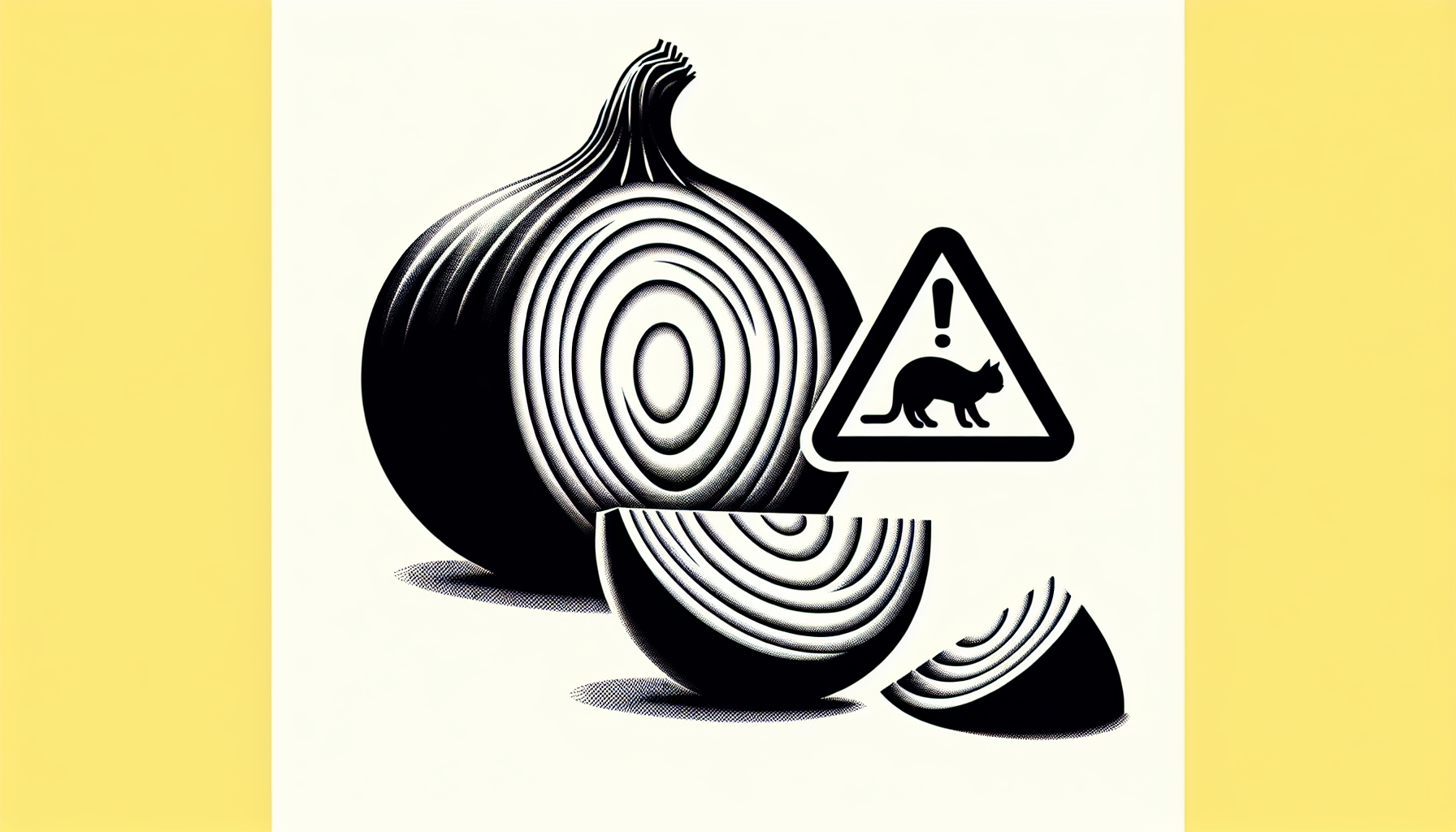If you’ve ever wondered whether cats can eat onions, you’re not alone. Onions are a staple ingredient in many dishes, but when it comes to our feline friends, it’s important to know what foods are safe for them to consume. In this article, we’ll explore the potential risks and benefits of feeding onions to cats, along with some alternative options that can provide the flavors and nutrients they need without any harmful side effects. So let’s find out – can cats eat onions?
Can Cats Eat Onions
Cats are known for their curious nature when it comes to food. As a responsible cat owner, it’s essential to be aware of what foods are safe for your feline companion to consume. Onions, however, are one food that you should keep far away from your kitty. While onions may seem harmless to us, they can actually be toxic to cats. In this article, we will explore why onions are dangerous for cats, the signs of onion toxicity, what to do if your cat ingests onions, and precautions that should be taken to prevent your cat from accessing onions. Additionally, we will discuss other foods to avoid feeding your cat, safe alternatives for flavoring their food, and when it is appropriate to consult your veterinarian.
Why Onions Are Toxic to Cats
Onions, along with other members of the Allium family, such as garlic, chives, and leeks, contain a substance called N-propyl disulfide. This compound is responsible for the toxic effects onions can have on cats. When a cat ingests onions, whether raw, cooked, or in powdered form, their red blood cells can be damaged, leading to a condition called Heinz body anemia. This condition can be life-threatening, as it impairs the cat’s ability to deliver oxygen to their tissues.
The Danger of Onion Consumption for Cats
Even a small amount of onions can pose a serious risk to your feline friend. Cats lack the necessary enzymes to break down the Allium compounds found in onions, making them more susceptible to the toxic effects. The severity of the danger depends on the size of the cat, the amount of onions consumed, and the overall health of the cat. It’s important to note that all parts of the onion, including the flesh, skin, and juice, are toxic to cats.

This image is property of images.unsplash.com.
Signs of Onion Toxicity in Cats
Recognizing the signs of onion toxicity is crucial in ensuring prompt medical attention for your cat. If your feline companion has ingested onions, you may notice symptoms such as vomiting, diarrhea, abdominal pain, loss of appetite, lethargy, weakness, pale gums, and increased heart rate. In severe cases, your cat may experience difficulty breathing or collapse. If you observe any of these signs after your cat has come into contact with onions, it’s essential to seek veterinary care immediately.
What to Do If Your Cat Eats Onions
If you suspect that your cat has ingested onions, it is vital to act swiftly. Time is of the essence when it comes to treating onion toxicity in cats. First, remove any remaining onions or onion-containing food from your cat’s reach. Then, contact your veterinarian to discuss the situation. They may recommend inducing vomiting if the ingestion occurred recently and your cat is not showing any signs of distress. In more severe cases or if your cat is already showing symptoms, your veterinarian might suggest hospitalization and supportive care, including intravenous fluids and treatment to counteract the effects of the toxic compounds.

This image is property of images.unsplash.com.
Prevention Tips to Keep Cats Away from Onions
Prevention is always better than cure, especially when it comes to the health and well-being of our beloved cats. Here are some tips to help keep your feline companion away from onions and other toxic foods:
-
Store onions securely: Ensure that onions are stored in a place that is inaccessible to your cat. Consider using airtight containers or placing them in a locked cupboard.
-
Be cautious when cooking: Keep a close eye on your cat when you are cooking with onions. Cats are naturally curious, and they might try to sneak a taste. Keep counters clear of onion scraps and don’t leave onions unattended.
-
Educate family members and visitors: Inform everyone in your household and any visitors about the dangers of onions for cats. Remind them to be mindful of what they leave within the cat’s reach.
-
Check ingredient labels: When purchasing commercial cat food, carefully read the ingredient labels to ensure that onions or any related ingredients are not included.
Other Foods to Avoid Feeding Your Cat
While onions are a particularly dangerous food for cats, there are several other foods that are also harmful and should be avoided. Some of these include chocolate, caffeine, alcohol, grapes, raisins, yeast dough, and certain nuts like walnuts and macadamia nuts. Additionally, dairy products can cause gastrointestinal upset in many cats, as they lack the necessary enzymes to digest lactose properly.

This image is property of images.unsplash.com.
Alternatives to Onions for Flavoring Your Cat’s Food
If you’re looking to add some flavor to your cat’s food without any toxic risks, there are safe alternatives that you can consider. Herbs such as parsley, basil, and catnip can be used to entice your cat’s palate. Just remember to use them in moderation, as some cats may have sensitivities to certain herbs. Alternatively, you can try adding a small amount of cooked meat or fish to your cat’s meal for an extra taste sensation.
Safe Foods for Cats
While there are several foods cats should avoid, there are also many safe options that can be included in their diet. High-quality commercial cat foods that are specifically formulated for feline nutrition are generally the best option. These foods provide the necessary balance of nutrients and are free from any potentially harmful ingredients. Additionally, cats can consume cooked meat, such as chicken or turkey, in small quantities. Just be sure to remove any bones and avoid using seasoning or spices. Certain fruits and vegetables, like apples, blueberries, and carrots, can also be given as occasional treats. However, always introduce new foods gradually and monitor your cat for any adverse reactions.

Consulting Your Veterinarian
If you have any concerns about your cat’s diet or suspect they may have ingested onions or other toxic substances, it is crucial to consult your veterinarian. They are the best resource for providing personalized advice and guidance based on your cat’s individual needs and health status. Your veterinarian can help ensure that your cat is receiving a nutritionally balanced diet and can offer recommendations for any necessary dietary modifications.
Conclusion
In conclusion, onions are toxic to cats and should be strictly avoided. The N-propyl disulfide compound found in onions can cause severe damage to a cat’s red blood cells, leading to life-threatening conditions. Knowing the signs of onion toxicity and taking immediate action if your cat consumes onions can help prevent further harm. By following precautionary measures to keep onions out of your cat’s reach, being aware of other foods that are harmful to cats, and exploring safe alternatives for flavoring their food, you can ensure your cat stays healthy and happy. Remember, when in doubt, consult your veterinarian for professional advice and recommendations tailored to your cat’s specific needs.


